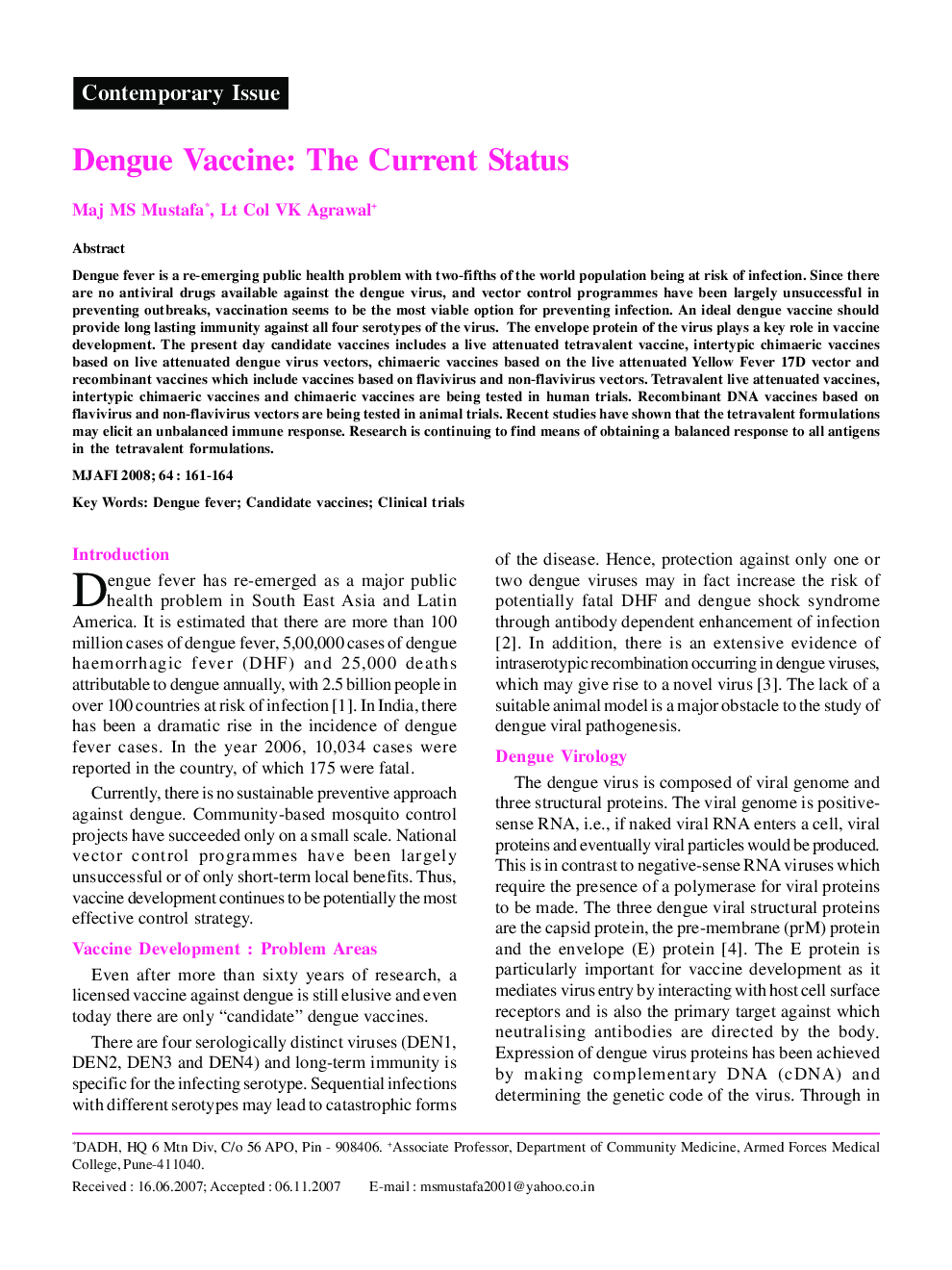| Article ID | Journal | Published Year | Pages | File Type |
|---|---|---|---|---|
| 3162462 | Medical Journal Armed Forces India | 2008 | 4 Pages |
Dengue fever is a re-emerging public health problem with two-fifths of the world population being at risk of infection. Since there are no antiviral drugs available against the dengue virus, and vector control programmes have been largely unsuccessful in preventing outbreaks, vaccination seems to be the most viable option for preventing infection. An ideal dengue vaccine should provide long lasting immunity against all four serotypes of the virus. The envelope protein of the virus plays a key role in vaccine development. The present day candidate vaccines includes a live attenuated tetravalent vaccine, intertypic chimaeric vaccines based on live attenuated dengue virus vectors, chimaeric vaccines based on the live attenuated Yellow Fever 17D vector and recombinant vaccines which include vaccines based on flavivirus and non-flavivirus vectors. Tetravalent live attenuated vaccines, intertypic chimaeric vaccines and chimaeric vaccines are being tested in human trials. Recombinant DNA vaccines based on flavivirus and non-flavivirus vectors are being tested in animal trials. Recent studies have shown that the tetravalent formulations may elicit an unbalanced immune response. Research is continuing to find means of obtaining a balanced response to all antigens in the tetravalent formulations.
